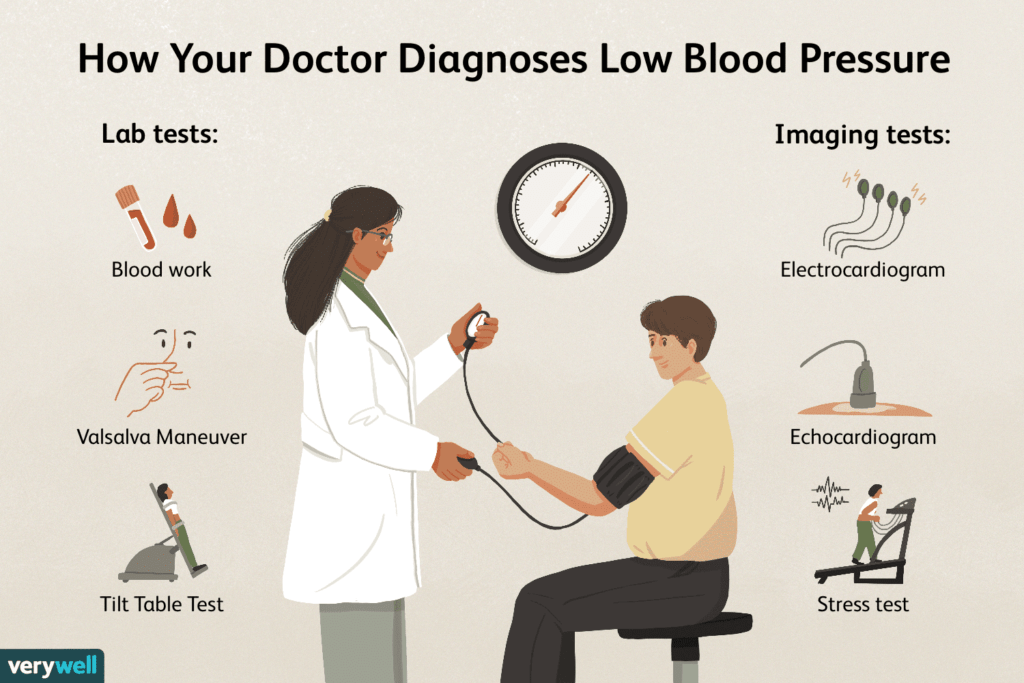
Low Blood Pressure
Low blood pressure is also called hypotension. Low blood pressure occurs when blood pressure drops below the normal range. Low B.P., 90/60 mmHg or below. Normal blood pressure is considered to be below 120/80mmHg. Hypotension can be temporary or it can be a chronic condition.
Blood pressure is the force of the blood as it presses against the blood vessel wall. Blood pressure is measured in systolic pressure and diastolic pressure. systolic pressure is when the blood is pumping, and diastolic pressure is between beats when the heart is at rest.
Types:
Orthostatic low B.P. : It is a common form of low blood pressure. In orthostatic hypotension, people feel lightheaded or faint when they stand up or change position suddenly.
Neurally mediated low B.P. : In this type of hypotension person feel dizziness, nauseous, and faint after exercise or standing for a long time
Postprandial low B.P. : It is a rare form of hypotension. In this type of hypotension, a drastic down in blood pressure occur 30 to 75 minutes after eating a proper meal
Causes:
Low B.P. is a sign of another medical condition
A common cause of physiological occurring hypotension:-
1. Dehydration or electrolyte loss
2. Excessive blood loss during menstruation
Other causes:
- Anemia
- Loss of blood
- Severe dehydration
- Drugs used to treat hypertension
- Cardiovascular disease
- Central nervous system disorder
- In pregnancy
- Heart failure
- Hypoglycemia
- Diabetes
- Hypothyroidism
- Septicemia
- Certain medications cause low B.P.
- Depression
- Lack of nutrients
Symptoms:
- Lethargy feeling
- Lightheadedness
- Dizziness / fatigue
- Fainting
- Shallow breathing
- Blurred vision
- Weak pulse
- Confusion
- Cold, clammy skin
Pale face if the person suffering from anemia
Management:
Drink plenty of fluids
Avoid standing for a long period of time
Eat well-nourished diet
Eat a diet higher in salt
Get regular exercise to promote blood flow
Reduce alcohol
Eat small meals more frequently
Try to reduce your stress level to avoid the emotional trauma
Diagnosis:
Physical examination: Repeatedly check your blood pressure and pulse rate
ECG to measure heart rate and rhythm
Blood test: to check anemia, vitamin deficiencies, T3, T4, TSH, or other problems with blood sugar level
Homeopathic medicine:
Veratrum album: Veratrum album is a good choice for low B.P.. Indications are the pale face, anemic person. Profound prostration, collapse with extreme coldness and weakness.
Glonoine: Glonoine is indicated when a person feels dizziness with heaviness in the head. Rapid heart rate with difficulty in breathing along with low B.P. . Headache increase as the sunrises or decrease when the sun goes down
Conium: Conium is a well-indicated remedy that helps specifically older patients suffering from low B.P. Great debility in the morning. Sudden loss of strength while walking.